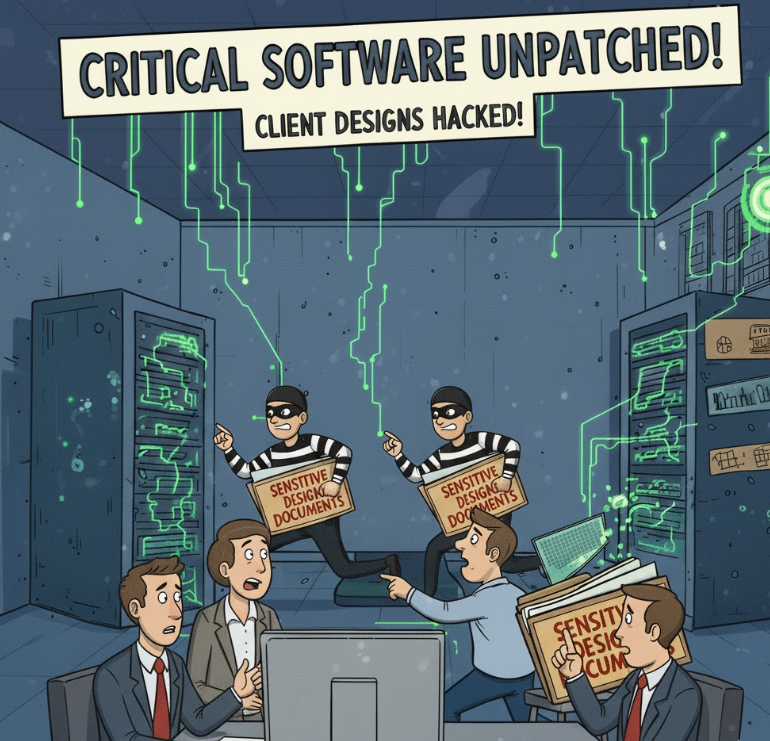Architecture Consultancy Targeted by Cyberattack After Failing to Patch Critical Software Used for Client Designs
The Challenge
In mid 2025, Atlas Urban Design, a Toronto-based architecture firm, suffered a critical data breach that threatened the integrity of two major development projects. Attackers had exploited an unpatched vulnerability in an outdated CAD software plugin still used by several teams within the firm. The plugin, known to be insecure, had been left active due to concerns that newer versions might break compatibility with existing project files.
For more than two weeks, the attackers had undetected access to project directories, allowing them to exfiltrate sensitive design documents, structural schematics, and confidential bidding materials. The breach came to light only after a long-term client raised concerns that a competing bid contained uncannily similar designs and layout elements. This prompted an urgent internal investigation, revealing that the affected systems lacked centralized monitoring and had not been included in routine software updates or endpoint protection policies.
Further complicating matters, the third-party IT support contractor responsible for patch management had previously flagged the issue but delayed action due to internal conflicts over software compatibility and project delivery timelines. The firm had no automated alerting for plugin vulnerabilities and no structured response plan for zero day exploitation.
Our Solution
We were brought in to contain the breach and harden the organization’s infrastructure. Our first step was isolating all workstations suspected of exposure and revoking external access credentials. We then implemented a centralized patch management system, ensuring that all design software and third-party tools were tracked, updated, and evaluated for security compatibility.
Legacy and unsupported plugins were phased out and replaced with secure, vendor-approved alternatives. Endpoint detection tools were deployed firm-wide, providing real-time monitoring of file access and unusual activity. We also introduced secure collaboration platforms for architects to exchange pre-bid materials with limited access, reducing the risk of unauthorized exfiltration.
Finally, we delivered targeted training for the design team, helping them understand the role of version control and secure document handling in protecting intellectual property.
The Value
Despite the initial reputational damage and the confirmed loss of one project, Atlas Urban Design retained its largest clients by demonstrating a transparent response and swift implementation of corrective measures. By proactively notifying clients and regulators, the firm avoided litigation and preserved ongoing partnerships. The estimated savings from avoided contract losses and reputational fallout exceeded $150,000.
This event became a turning point, driving deeper investments in cybersecurity, software governance, and client trust. What began as a technical oversight became a catalyst for operational maturity across the entire organization.
Implementation Roadmap
- Retire unsupported design plugins and software
- Deploy centralized patch management system
- Isolate affected workstations and restrict external access
- Implement data loss prevention across client folders
- Retrain staff on version control and secure collaboration


